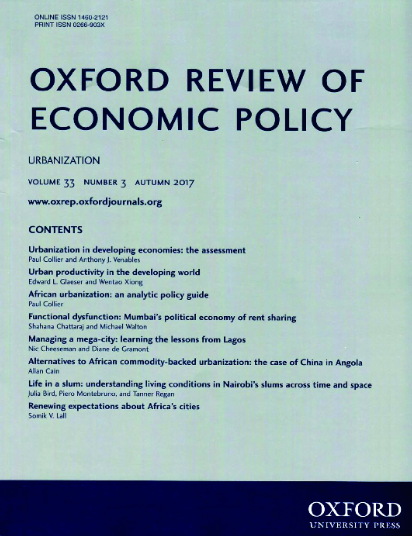不按比例分配的美国联邦财富税是否符合宪法?这意味着什么?
IF 1.8
2区 经济学
Q2 ECONOMICS
引用次数: 0
摘要
摘要为了评估未分配的联邦财富税和/或联邦所得税条款对富有纳税人未实现收益的合宪性,人们需要一个基本框架来判断法律主张。虽然没有这样的框架可以完全指定,至少在一般协议下,这并不支持虚无主义地拒绝所有关于更好与更坏,或更多与更少令人信服的法律分析实例的比较判断。虽然最高法院目前的右翼多数派几乎肯定会否决一项未分配的联邦财富税,但这个宪法问题的“正确”答案无法得到普遍认同。我本人不同意法院的这种裁决。自己解决这个问题的一个重要变量是,人们应该给波洛克诉农民贷款案多少持续的优先权。这一案件本身就公然违反了先例,但这是一个多世纪以前的事了,而且(另一方面)一些人认为它已经不再是好的法律。尊重先例的原则不仅具有实用价值,而且在美国法律体系中长期受到尊重(虽然断断续续),但所有人都同意,它的重要性不是绝对的。根据目前流行的法律原则,对最富有的美国人征收未分配的最低所得税,将他们未实现的资本收益包括在收入中,可能符合宪法。然而,艾斯纳诉麦康伯案(1920)如果被认为是超越其直接事实的好法律,将支持将其认定为违宪。目前最高法院的六名右翼人士将决定恢复麦康伯法案,这一前景只提供了一个理由,让人怀疑他们可能会否决这样一项条款,也许同时还会发起一场更广泛的宪法战争,反对现行制度对富人和资本收入征税的核心原则。然而,传统的法律分析无法预测这样一场战争将采取何种形式,或者最终以何种条件得到解决。本文章由计算机程序翻译,如有差异,请以英文原文为准。
Would an unapportioned US federal wealth tax be constitutional, and what does that mean?
Abstract To assess the constitutionality of an unapportioned federal wealth tax, and/or of a federal income tax provision reaching wealthy taxpayers’ unrealized gains, one needs an underlying framework for making judgements about legal claims. While no such framework can be entirely specified, at least to general agreement, this does not support nihilistically rejecting all comparative judgements about better versus worse, or more versus less convincing, instances of legal analysis. While it appears nearly certain that the Supreme Court’s current right-wing majority would strike down an unapportioned federal wealth tax, the ‘correct’ answer to this constitutional question cannot be proven to general agreement. I myself would disagree with such a holding by the Court. An important variable in resolving the issue for oneself is how much continuing precedential weight one should give to Pollock v. Farmers’ Loan & Trust Co.—a case that itself blatantly disrespected precedent, but that did so more than a century ago, and that (on the other hand) some argue has already ceased to be good law. The principle of respecting precedent both has instrumental value and has been long (if fitfully) honoured within the American legal system, but all agree that its weight is not absolute. An unapportioned minimum income tax on the wealthiest Americans that included in income their unrealized capital gains would likely be constitutional under currently prevalent legal doctrine. It is true, however, that Eisner v. Macomber (1920), if it were held to remain good law beyond its immediate facts, would support holding it unconstitutional. The prospect that the current Supreme Court’s six right-wingers will decide to revive Macomber provides only one reason for suspecting that they might strike down such a provision, perhaps while also launching a broader constitutional war against central tenets of the current regime for taxing wealthy individuals and capital income. However, it lies beyond the power of conventional legal analysis to predict either what form such a war would take, or on what terms it might end up being resolved.
求助全文
通过发布文献求助,成功后即可免费获取论文全文。
去求助
来源期刊

Oxford Review of Economic Policy
ECONOMICS-
CiteScore
12.50
自引率
1.50%
发文量
41
期刊介绍:
The Oxford Review of Economic Policy is a refereed journal which is published quarterly. Each issue concentrates on a current theme in economic policy, with a balance between macro- and microeconomics, and comprises an assessment and a number of articles. It gives a valuable appraisal of economic policies worldwide. While the analysis is challenging and at the forefront of current thinking, articles are presented in non-technical language to make them readily accessible to all readers. The Oxford Review is aimed at a wide audience including government, business and policy-makers, as well as academics and students. It is required reading for those who need to know where research is leading.
 求助内容:
求助内容: 应助结果提醒方式:
应助结果提醒方式:


